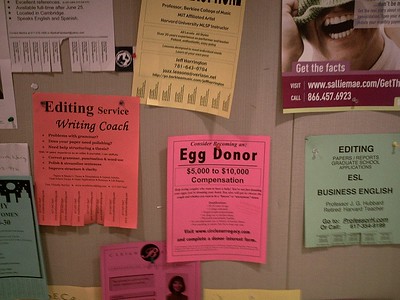As DNA Donors’ Secrets Emerge, What Should the Children Know?
By Amy Dockser Marcus,
The Wall Street Journal
| 05. 27. 2022
Tyler Sniff took a home DNA test at 32 years old and unexpectedly learned that the man who raised him was not his biological father. When Mr. Sniff shared the discovery with his siblings, they asked their parents for an explanation. Their parents revealed that they had used an anonymous sperm donor in order to conceive their six children.
The realization that his parents had kept his origins a secret from him stunned Mr. Sniff, now 34, an environmental lawyer who lives in Atlanta. He began researching the rules surrounding donor conception. There were federal regulations about blood tests donors must take and state laws addressing that the parents and not the donor are recognized as responsible for the child. But when it came to Mr. Sniff’s right to know his own genetic background, the government was mostly silent.
Mr. Sniff, who has since co-founded an advocacy group, recognizes that his parents’ decision to use an anonymous donor is responsible for his existence. “I am grateful for my life,” he says. But as an adult, he felt his right to...
Related Articles
By Diaa Hadid and Shweta Desai, NPR | 01.29.2026
MUMBRA, India — The afternoon sun shines on the woman in a commuter-town café, highlighting her almond-shaped eyes and pale skin, a look often sought after by couples who need an egg to have a baby.
"I have good eggs,"...
By Steve Rose, The Guardian | 01.28.2026
Ed Zitron, EZPR.com; Experience Summit stage;
Web Summit 2024 via Wikipedia Commons licensed under CC by 2.0
If some time in an entirely possible future they come to make a movie about “how the AI bubble burst”, Ed Zitron will...
By Arthur Lazarus, MedPage Today | 01.23.2026
A growing body of contemporary research and reporting exposes how old ideas can find new life when repurposed within modern systems of medicine, technology, and public policy. Over the last decade, several trends have converged:
- The rise of polygenic scoring...
By Daphne O. Martschenko and Julia E. H. Brown, Hastings Bioethics Forum | 01.14.2026
There is growing concern that falling fertility rates will lead to economic and demographic catastrophe. The social and political movement known as pronatalism looks to combat depopulation by encouraging people to have as many children as possible. But not just...




